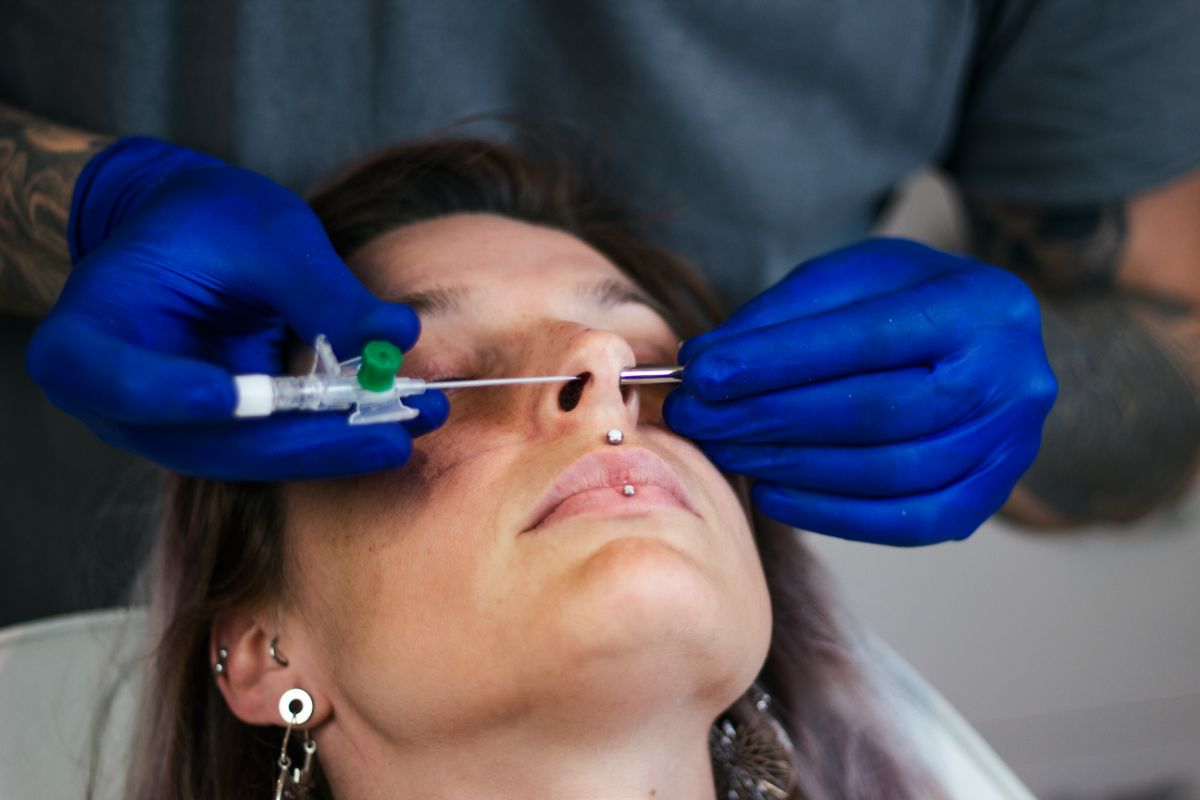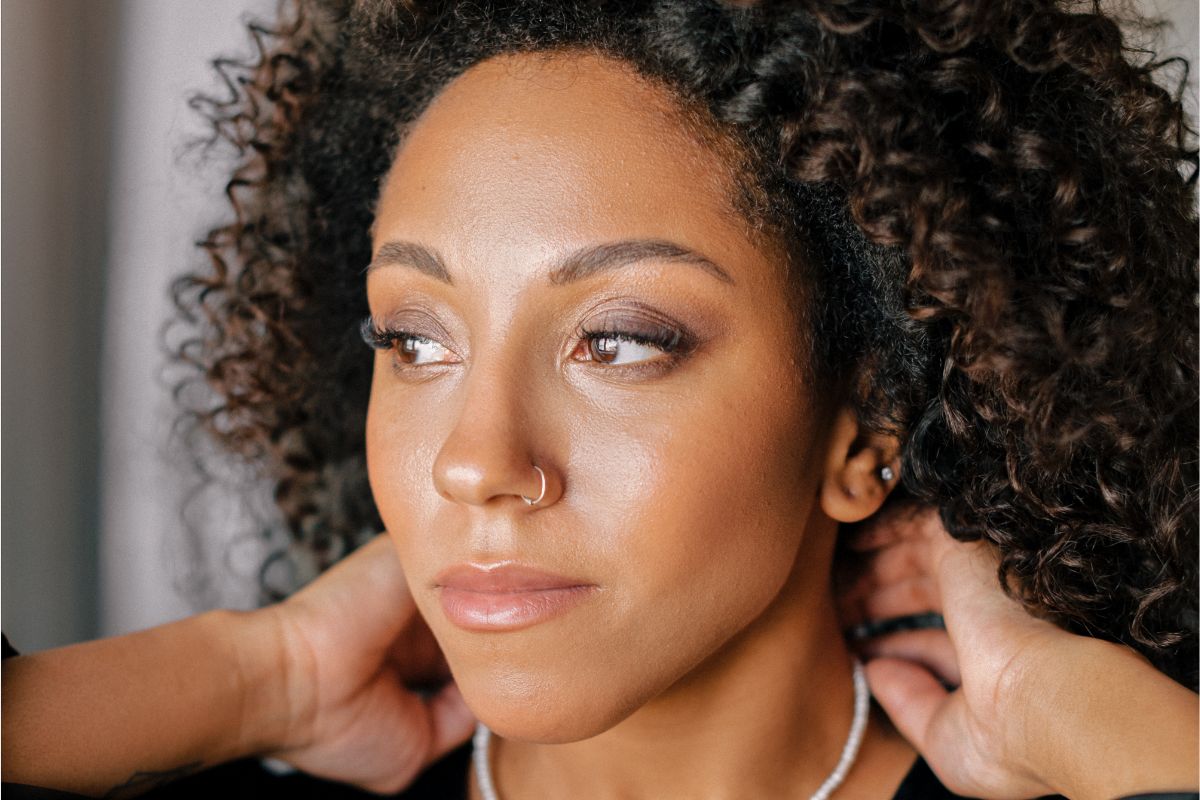As we know, piercing your body involves creating a hole in your body and then using it to hold jewelry or some other accessory.
One of the most common types of piercing will be earlobe piercing which can be done using a needle or a piercing gun, however, with other parts of the body, the process tends to be a little more technical.
Just from the definition, we can see that there are some inherent risks that come with piercing since the actions just have natural risks which we are usually aware of.
However, it is important to know all of the risks that are associated with piercing before you commit to actually getting a piercing.
On top of this, you should also understand how to prevent issues with your piercings happening and what to do after your piercing to look after it.
This guide will cover all of this information in a way that is easy to understand and ensures that you know what you are signing up for when you decide to get a piercing!
Risks
In this section we will go over the main risks and dangers you could run into when getting a piercing.
This is not an exhaustive list, and it is not possible to get every potential reaction in one place since you can get a piercing in so many different places in so many different ways.
However, we will be covering the main issues that you can run into, and what they are caused by. After the risks, we will cover the main ways to avoid these happening!
Infection
Likely the most common negative risk of getting a piercing is the chance for an infection, and this is likely what you have heard of other people dealing with.
This is because some parts of the body are more susceptible to getting infected, especially a navel piercing. You will find that bacteria are the most common pathogens, and these are what will inject your piercing.
The most common signs of this are pus, swelling and redness surrounding the piercing. However, you do not have to worry too much since these issues can usually be treated with an oral or a topical antibiotic.
However, you could get infected by something worse, but these are more rare, however, you should still be careful!
Allergen
Another common reaction to a piercing which can happen is having an allergic reaction to the piercing, or the piercing needle.
The most common allergen which people will react to is nickel. The reason this is so common for people who wear cheaper jewelry that often contains nickel, is to have a reaction on their piercing.
This is why it is so important to ensure that you are wearing proper quality jewelry that is suitable for piercings.
You want this jewelry to be made from surgical stainless steel, platinum, or titanium. Gold is fine for a lot of people, but for others this can cause a reaction, so be careful!

Bleeding
Some people can suffer from excessive bleeding in reaction to a piercing and this is of course something that you want to avoid.
This is mainly only an issue with people who have a pre-existing blood disorder, or are using blood thinners as medication for another condition.
Even medication like aspirin and ibuprofen can encourage excessive bleeding and even some supplements, so make sure that you are not going to bleed too much.
Other Issues
So, while the previous 3 points are the most common risks you will run into when getting a piercing.
However, there are other issues which you can run into which you should be aware of. For example, if an infection is untreated you can suffer from abscesses, and if an infection gets into your bloodstream you could get sepsis.
You can also face nerve damage and dental trauma depending on the placement of the piercing.
Make sure to get a rundown of the specific potential risks of your piercing from the person piercing you, and make sure to always get your piercings from a well recommended professional!
How To Prevent The Chance Of Issues
You want to ensure that the person who is doing your piercing is being hygienic. This means that they have washed their hands before doing the procedure.
You also want to be regularly washing your hands when you are taking care of your piercing as well.
This is the best way to reduce the risk of getting an injection. You will also want the person who is doing your piercing to be wearing sterile gloves when doing the procedure as well.
Also look out for how they are doing the piercing as well. You ideally want the piercing shop to be using a single use kit, or an autoclave to clean and sterilize the instruments used, otherwise you will want to go somewhere else.
If you are putting jewelry in your piercing, then you want to make sure that it is unopened as well as sterile.
Also, as mentioned earlier, you want to ensure that the jewelry is made from a material that you are not going to react to.
You will also want to ensure that the location you are getting the piercing from is properly licensed and has not faced any health violations as well.
Post Op
On top of the precautions you should take before getting your piercing, you also want to ensure that you are following all of the post op instructions you have been given as well.
One of the most important is to ensure that you are washing your hands thoroughly before you touch and clean your piercing.
On top of this, you want to use antibacterial products to clean your piercing at regular intervals as well. If you have a mouth piercing, you want to get a specialty mouthwash recommended to you as well.
Generally speaking, you should also keep your hands away from your piercing, especially when it is new, so try to avoid playing with it.
Also, you do not want the piercing to face any trauma either. You will also get a recommendation from your piercer about how long you should keep the jewelry in so your piercing does not close up, so make sure to follow this advice.
Finally, you want to avoid spots like swimming pools, or swimming in general, until your piercing is fully healed, this will ensure you avoid infection!
Summary
Hopefully this guide has given you all the information you need on the potential dangers and risks of getting a piercing.
Of course there is always a chance of these risks coming to fruition, however, if you take the right precautions, and make sure to do all the correct aftercare, the chances of these risks happening are limited.
You want to make sure that if you have any pre-existing conditions that you do research and talk to a doctor about how this might react to getting a piercing, and make sure to check for any allergies you have first as well.
As long as you do proper risk assessment before getting a piercing, there should not be too much that you have to worry about.





